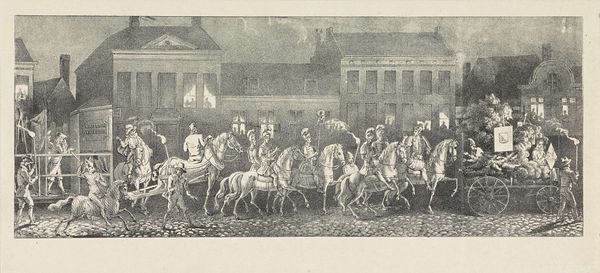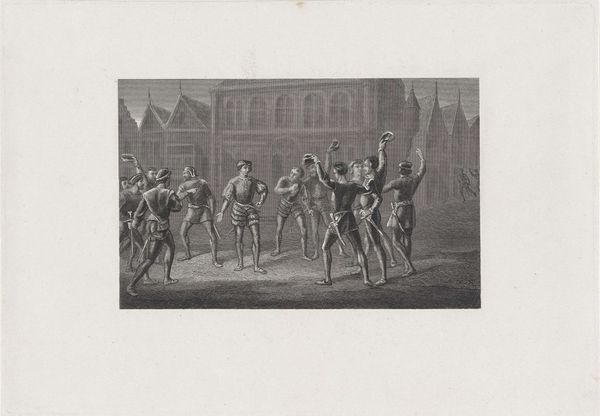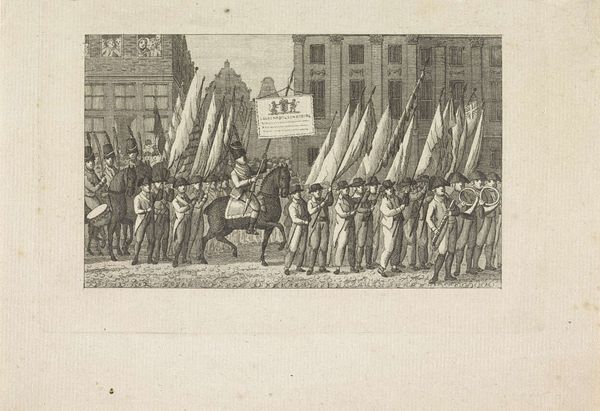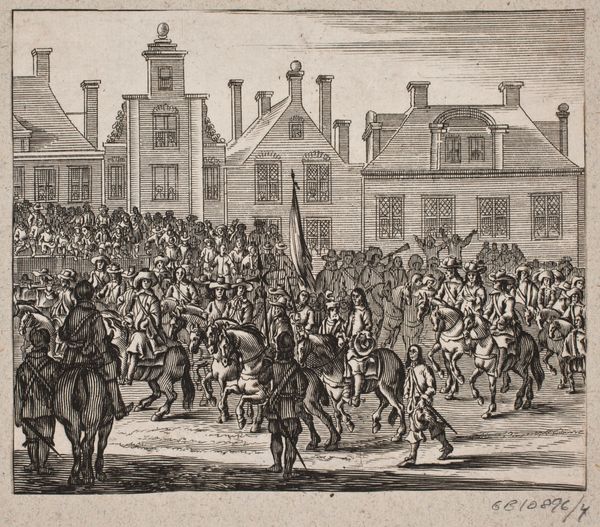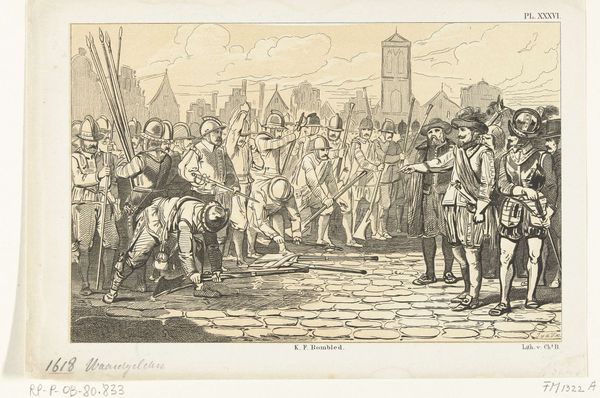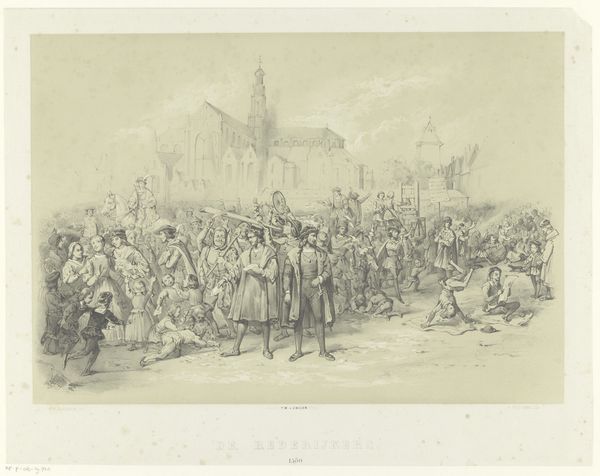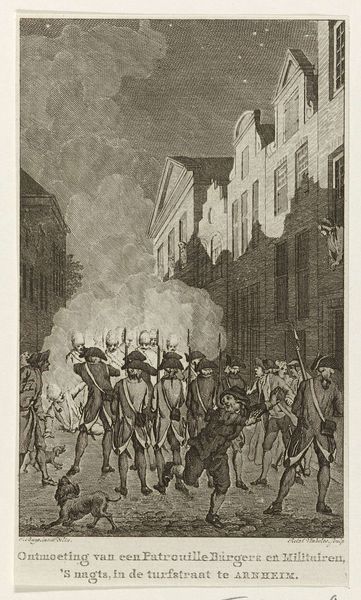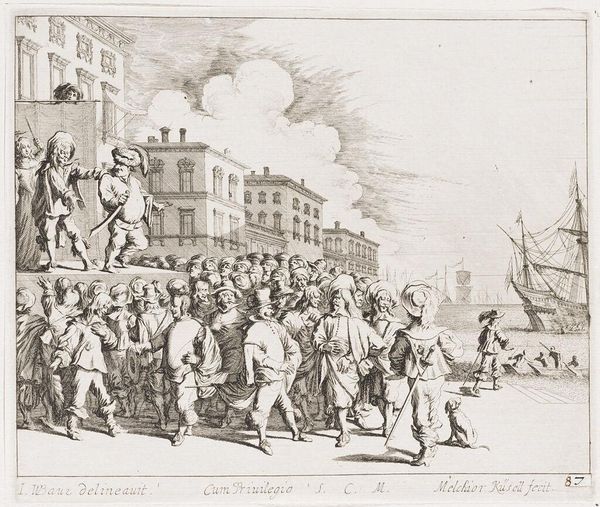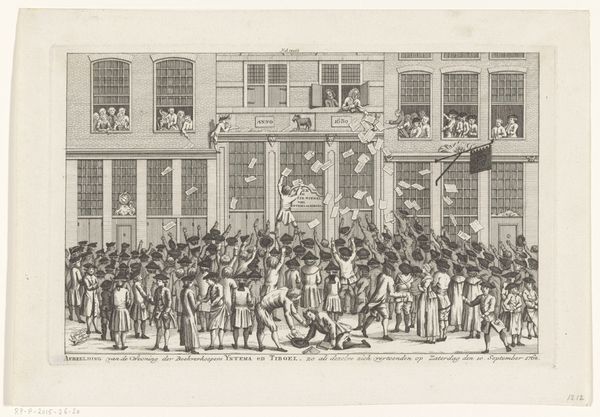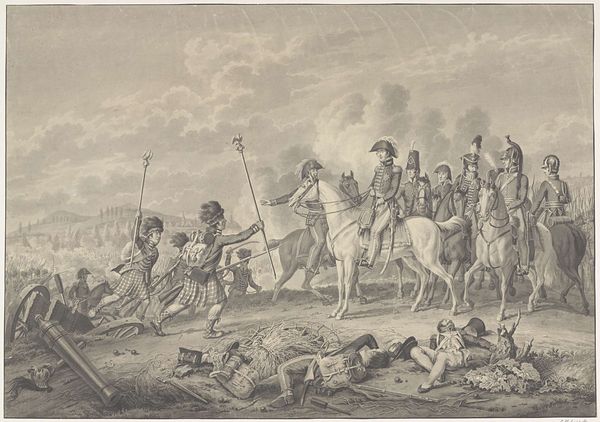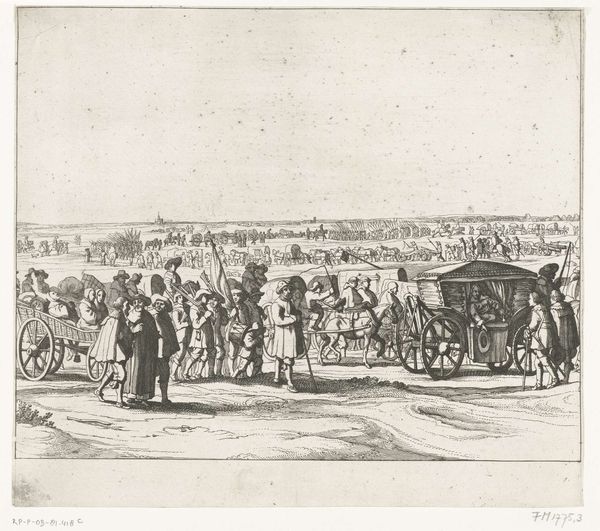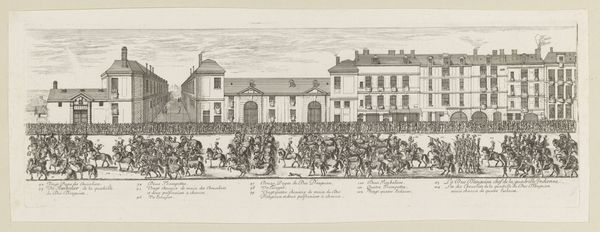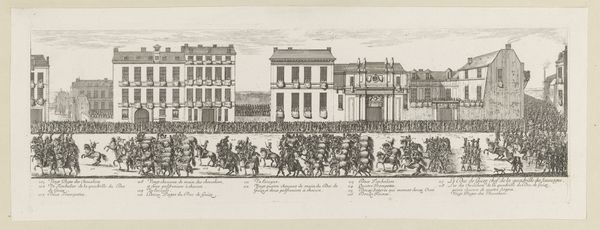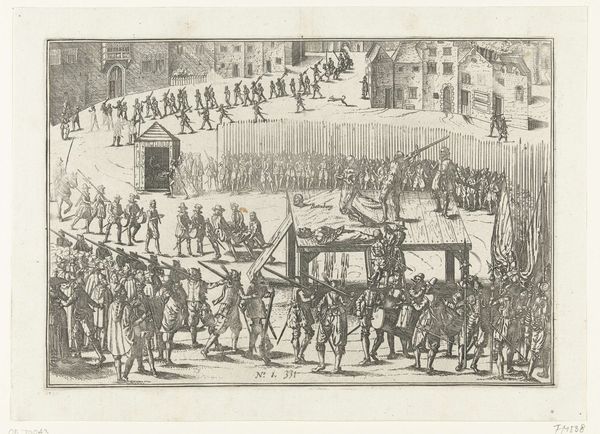
drawing, pen, engraving
#
drawing
#
narrative-art
#
pen sketch
#
pencil sketch
#
romanticism
#
pen
#
cityscape
#
genre-painting
#
engraving
Dimensions: height 205 mm, width 485 mm
Copyright: Rijks Museum: Open Domain
Johannes Paulus Houtman made this print titled *Optoht in Maskerade (Plate 1)* in 1829, using etching and engraving techniques. Looking closely, you can see how the artist has built up the image with many tiny lines, each carefully bitten into the metal plate with acid. Etching and engraving are laborious processes; each print involves considerable hand work, from preparing the plate to pulling the print. The result has a distinctly democratic feel, because prints can be reproduced many times. Here, the depiction of a parade becomes accessible to a wide audience. This speaks to the rise of a middle class readership with an appetite for images depicting civic life. Consider the labor involved in the production of this print, versus the effort required to stage the parade itself, and the different forms of value that each represents. Both, in their own way, contribute to the social fabric. Ultimately, understanding the materiality and methods behind an artwork like this allows us to appreciate its cultural significance, and to challenge traditional distinctions between fine art and craft.
Comments
No comments
Be the first to comment and join the conversation on the ultimate creative platform.
